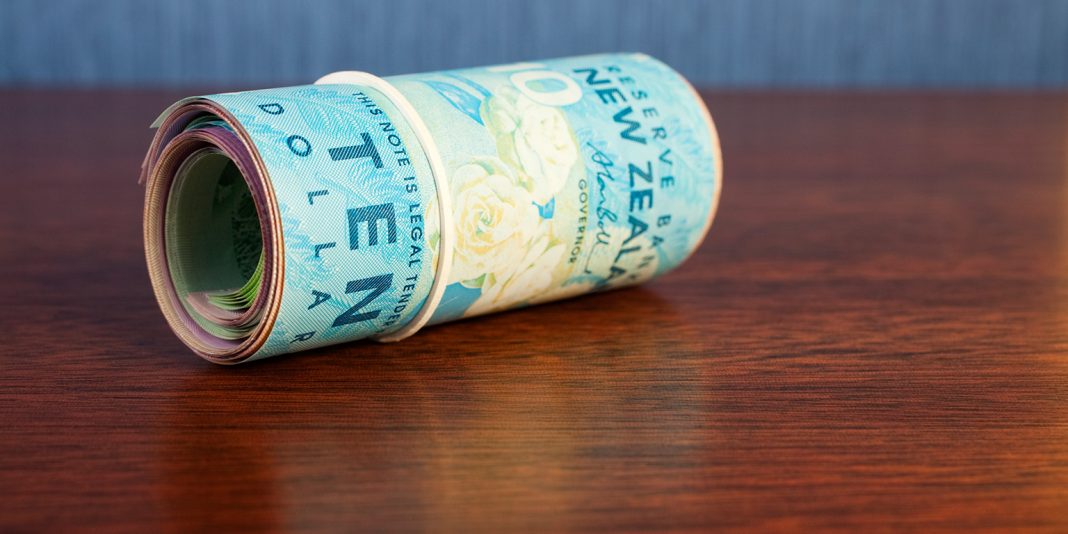A last-minute funding boost by the new Minister of Health has seen NZNO negotiators give a thumbs-up to a revised pay offer from the 20 District Health Boards.
It was revealed today that a new deal – a six per cent pay rise spread over just under three years – was offered by the DHBs on November 8 after, it is understood, successfully seeking sign-off from new Health Minister David Clark for additional funding. The offer also includes an “agreement in principle” by the DHBs to the merit of NZNO’s separate pay equity claim with negotiations on pay equity due to begin in February.
The pay deal now on offer is for an initial two per cent increase, backdated to November 6, for the majority of nurses, midwives and healthcare assistants covered by the DHB/NZNO multi-employer collective agreement (MECA) and further two per cent pay rises in August 2018 and August 2019. In addition there is a lump sum payment of $350 for current NZN0 MECA members who are permanent DHB employees. Designated senior nurses and midwives are being offered a four per cent pay rise backdated from November 6 and then two per cent pay rises in August 2018 and August 2019.
The DHBs’ initial pay offer was made in mid-October, prior to the new Government being formed, and NZNO negotiators have now revealed that they recommended the 27,000 registered nurse, enrolled nurse, midwife and healthcare assistant members covered by the MECA to vote against that first offer in the series of ratification meetings due to start on November 22.
That initial offer had a six-month delay before the first pay increase and a 43-month term, rather than the 33-month term now being offered.
“But on November 8 NZNO was informed that the DHB CEOs were meeting with the Minister for approval to go beyond the financial parameter so that they could increase the offer and that the CEOs would manage/address the additional costs within their budgets,” said NZNO in a MECA bulletin update to its members, that was revised on November 17 to clarify what lead to the new offer.*
Lesley Harry, the NZNO’s industrial advisory, said it believed having a new Minister of Health had “provided the opportunity to push the parameters a little further” leading to the latest offer.
NZNO negotiators are telling members that they believe the latest offer is “a fair settlement that delivers on most key issues and providers processes with set timeframes to address others”. It also noted that the overall cost of the offer was greater than other recent MECA settlements in the DHB sector.
Pay equity and safe staffing progress
When the MECA negotiations began in June the union also tabled an historic pay equity claim for nurses.
The negotiating team said the DHBs had now agreed in principle that the work of nurses, HCA and midwives is predominantly performed by women, and had been “historically undervalued and subject to systemic undervaluation”.
The union said it had also reached agreement on the process and timeframes for resolving pay equity issues with negotiations due to begin in February “with the goal of achieving an outcome later in 2018”.
A major plank of the negotiations was also safe staffing and the current slow implementation by DHBs of the Care Capacity Demand Management (CCDM) tools that use evidence-based data to calculate how many nurses need to be employed on a ward to deliver safe, quality patient care. (See recent Nursing Review story on DHB announcing nursing staff boost due to CCDM.)
The negotiators said the DHBs had now agreed to a package of changes that it believed would strengthen the DHBs obligations to deliver CCDM.
*Article updated at 12.45 on November 17 to reflect correction to NZNO MECA bulletin.
Safe staffing and other aspects of the proposed MECA offer:
- Full implementation of CCDM in all DHBs by 30 June 2021
- CCDM implementation plans will be agreed for each DHB within six months of ratification of the MECA (including DHBs that currently don’t have in place an evidence-based acuity tool required to implement the CCDM tools).
- CCDM implementation plans are to be part of DHB’s annual plans and accountability documents and will be included in the Ministry of Health operation policy framework.
- A re-evaluation of an agreed number of nurse practitioner role’s will be undertaken and completed by December 15 to help inform the pay equity process.
- A new Leadership Progression Pathway salary scale will be available for RNs and RMs who have been approved to be part of a DHB’s leadership programme.
- Designated RN prescribers who have been supported by the DHB will be placed on the Leadership Progression Pathway salary scale.
- PDRP allowances for ENs will increase from November 6 from $4000 to $4500 per year for EN Accomplished and from $2500 to $3000 per year for EN Proficient.
- The on-call rate will increase from $4.06 to $8 an hour from November 6 2017 and the public holiday on-call rate will increase to $10 an hour
- The escalation process for unsafe staffing has been revised to make it clearer and more user-friendly.
- Support for victims of domestic violence and an alternative dispute resolution process (consistent with NZNO’s commitment to Te Tiriti o Waitangi) will be explored jointly with other unions and DHBs during the term of the MECA.
NZNO claims not progressed:
- Improvements to professional development provisions
- Reductions to the numbers of hours staff can be required to work on-call
- An agreed interpretation on what ‘two full consecutive days off work each week’ consists of






















[…] have given the DHBs’ offer a thumbs-up after the change of government saw DHBs improving the initial deal. The DHBs have also agreed to commence separate pay equity talks with the union in February for the […]